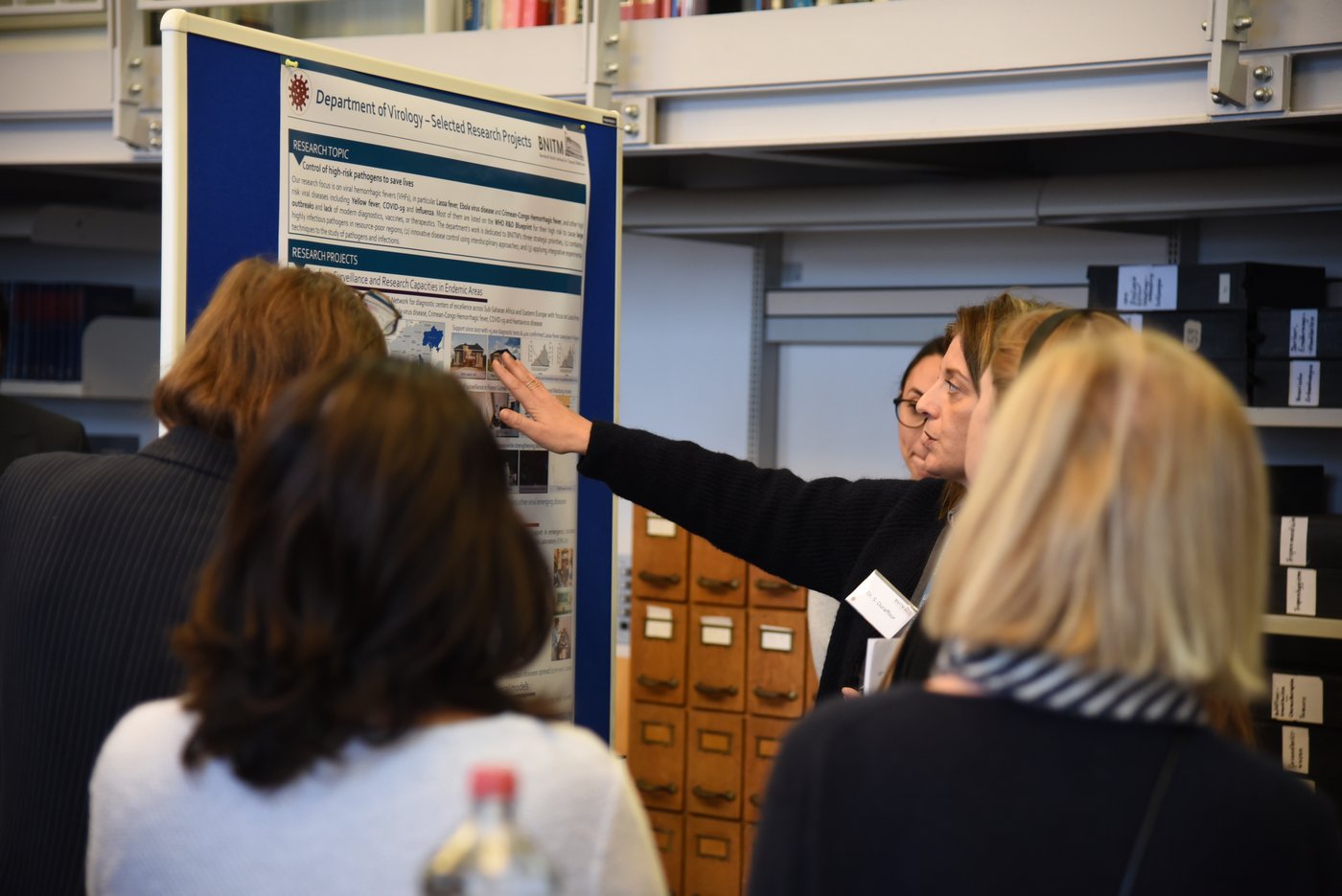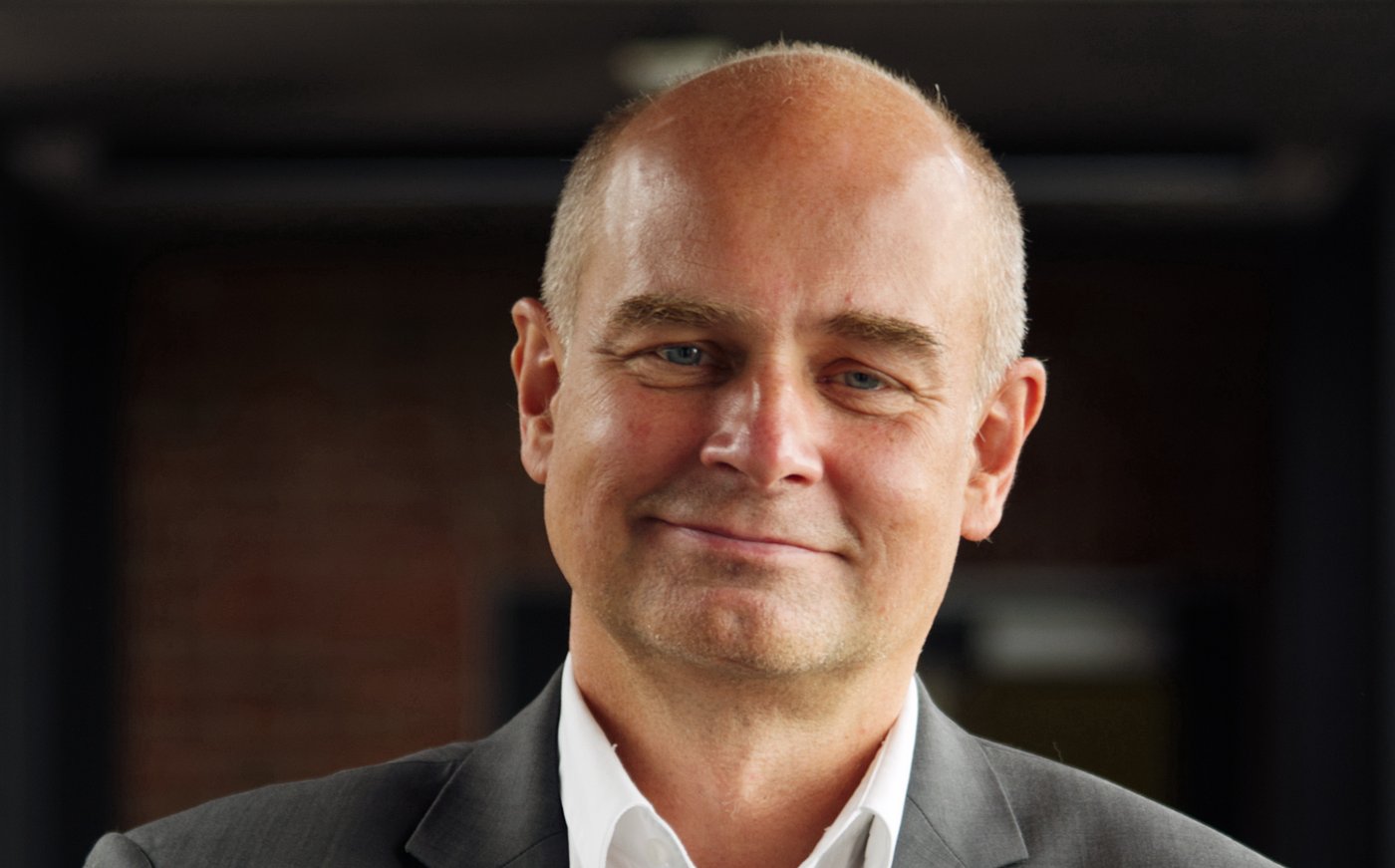BNITM successfully evaluated by the Leibniz Association
Top marks for the work of the Bernhard Nocht Institute for Tropical Medicine (BNITM)
The Bernhard Nocht Institute for Tropical Medicine (BNITM) has received an excellent evaluation from the Leibniz Association. At its meeting today, the Senate recommended that the federal and state governments continue to fund the institute for seven years.

Top marks for the Bernhard Nocht Institute for Tropical Medicine (BNITM): The external evaluators have predominantly awarded the grades "Excellent" and "Very good". According to the evaluation commission, the institute is extremely successful in research, care and teaching in the field of infectious diseases and tropical medicine with a focus on Africa. It maintains excellent research infrastructures, such as high-security laboratories of biological protection level 3 and 4, operates diagnostic centres of national and international importance and contributes to the development of laboratory capacities in resource-poor regions in Africa.
The external experts also recognised how the institute has developed since the last evaluation: Within seven years, the BNITM has grown from three to five sections. The number of employees rose from 247 to 381 and third-party funding, an important indicator of success in research, almost doubled from 8.6 million to 16.4 million euros.

Acording to the evaluation commission, the Executive Board has organised all of this very well in terms of structure and content. The new section structure, for example, makes it possible to combine molecular laboratory research with clinical-epidemiological field research and now also with on-site implementation studies in order to cover the entire translational spectrum of research work. In this way, research at the BNITM leads to innovative, sometimes outstanding results, which are regularly published at a high level in internationally recognised journals. The evaluation commission recognises the BNITM's diagnostic services as a unique selling point. The WHO Collaborating Centres for Arboviruses and Haemorrhagic Fever Viruses and for Behavioural Research for the Promotion of Global Health are also positively highlighted by the Evaluation Commission.
"We are delighted with the excellent rating," says Prof. Dr Jürgen May, Chairman of the Board at the BNITM. "This gives us momentum for the challenges that lie ahead: the plans for a new building and the establishment of the additional, overarching "Computational Sciences" department. I would like to thank all employees for their great commitment in all areas of the institute - during the demanding evaluation process and every other day!"

The currently 96 institutes of the Leibniz Association are jointly funded by the federal government and the federal states, and are evaluated every seven years. In this process, an evaluation commission identifies the strengths, weaknesses, and development potential of an institution and makes a recommendation on whether it should remain part of the Leibniz Association.
About the Bernhard Nocht Institute for Tropical Medicine (BNITM)
The Bernhard Nocht Institute for Tropical Medicine (BNITM) is Germany's largest institution for research, care and teaching in the field of tropical and emerging infectious diseases. BNITM research has always focussed on global health / One Health and on translation - the transfer of basic research into application. This research approach is also reflected in the Institute's five sections: Pathogen (pathogen) -> Interface (immunology, host/pathogen) -> Patient (clinic) -> Population (epidemiology) -> Implementation (successful establishment of knowledge).
Current thematic priorities are malaria, haemorrhagic fever viruses, neglected tropical diseases (NTDs), immunology, epidemiology and the clinic of tropical infections as well as the mechanisms of virus transmission by mosquitoes. For the handling of highly pathogenic viruses and infected insects, the institute has laboratories of the highest biological safety level (BSL4) and a safety insectarium (BSL3). The BNITM's mobile laboratories are available for global outbreak control of highly pathogenic or highly infectious viruses.
The BNITM is a National Reference Centre for the detection of all tropical infectious agents, a WHO Collaborating Centre for Arboviruses and Haemorrhagic Fever Viruses, a WHO Collaborating Centre for Behavioural Research for Global Health and an institute in the Leibniz Association.
Together with the Ghanaian Ministry of Health and the University of Kumasi, the BNITM operates a modern research and training centre in the West African rainforest, which is also available to external working groups. The institute also maintains numerous other collaborations in other African countries such as Gabon, Nigeria, Tanzania and Madagascar.
Contact person
Prof. Dr Jürgen May (Chair)
Board of Directors
Phone : +49 40 285380-261
Email : chair@bnitm.de
Dr Anna Hein
Public Relations
Phone : +49 40 285380-269
Email : presse@bnitm.de
Julia Rauner
Public Relations
Phone : +49 40 285380-264
Email : presse@bnitm.de







